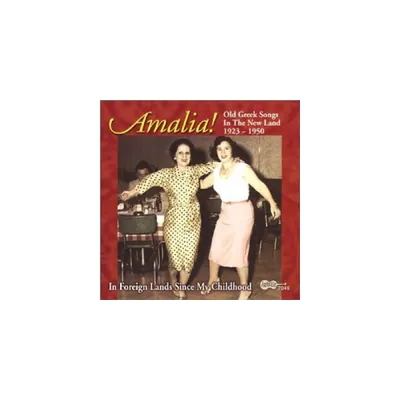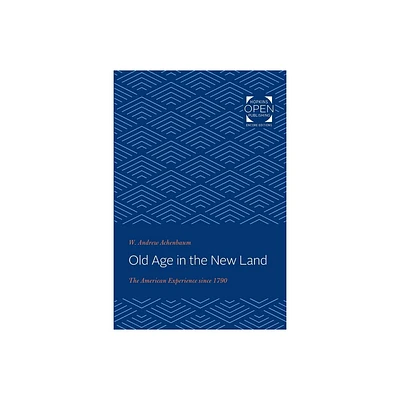Home
Old Greek Songs in the New Land 1923-1950: In Foreign Lands Since My Childhood
Loading Inventory...
Barnes and Noble
Old Greek Songs in the New Land 1923-1950: In Foreign Lands Since My Childhood
Current price: $13.99


Barnes and Noble
Old Greek Songs in the New Land 1923-1950: In Foreign Lands Since My Childhood
Current price: $13.99
Loading Inventory...
Size: OS
*Product Information may vary - to confirm product availability, pricing, and additional information please contact Barnes and Noble
Amalia
, whose real name was
Mazaltov Matsa
, obviously had to sing. A Greek born in Turkey, she immigrated to America while still 14 and within a few years was married. But her husband divorced her (and sent one of her daughters back to Greece) after she began singing professionally. These sides are culled from recordings she made in the 1920s and '40s (she didn't record during the '30s, seemingly finding performing and running illegal bars during Prohibition more profitable). Her music was very much that of the old country, sung in
traditional
fashion with a very
accompaniment -- violin, cimbalom, oud, and dumbek were often featured with her voice. The vintage recordings are definitely somewhat scratchy, but excellent mastering allows the voice and melodies to shine through. And a remarkable, commanding voice she had, too, whether in laments like
"Thelo Na S'Alismonsio"
or the wistful
"Apo Ta Mikra Mou Hronia."
It's a fascinating peek into a thriving historical subculture, showing just how vital the Greek culture was, not just in New York, but also in places like Detroit and Chicago, during the early part of the 20th century. An invaluable document. ~ Chris Nickson
, whose real name was
Mazaltov Matsa
, obviously had to sing. A Greek born in Turkey, she immigrated to America while still 14 and within a few years was married. But her husband divorced her (and sent one of her daughters back to Greece) after she began singing professionally. These sides are culled from recordings she made in the 1920s and '40s (she didn't record during the '30s, seemingly finding performing and running illegal bars during Prohibition more profitable). Her music was very much that of the old country, sung in
traditional
fashion with a very
accompaniment -- violin, cimbalom, oud, and dumbek were often featured with her voice. The vintage recordings are definitely somewhat scratchy, but excellent mastering allows the voice and melodies to shine through. And a remarkable, commanding voice she had, too, whether in laments like
"Thelo Na S'Alismonsio"
or the wistful
"Apo Ta Mikra Mou Hronia."
It's a fascinating peek into a thriving historical subculture, showing just how vital the Greek culture was, not just in New York, but also in places like Detroit and Chicago, during the early part of the 20th century. An invaluable document. ~ Chris Nickson








